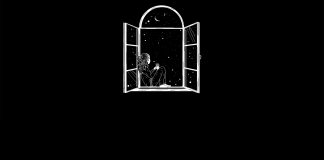The tree that overshadowed the earth
"[Jesus] told them another parable: 'The kingdom of heaven is like a mustard seed, which a man took and planted in his field. Though it is the smallest of all seeds, yet when it grows, it is the largest of garden plants and becomes a tree, so that the birds come and perch in its branches.' He told them still another parable: 'The...
The marathon runner with a mission
Dr Delbert Baker is an African-American pastor, writer, teacher, and former president of Oakwood University in Huntsville, Alabama, a historically Black Seventh-day Adventist institution of higher learning. The conversation with Dr Baker took place in Nairobi, Kenya. With Kenya being the country of marathon runners, much of the discussion was about the races he participated in and their remarkable results.
Only childhood makes us whole
While browsing through a folder of old documents, I rediscovered some poems written during my student years. One of them drew my attention because of a verse that resonated with me from the beginning: Only childhood makes us whole.
The greatest love
The word sacrifice is not really a pleasant word. When you hear it, you may think of weird archaic rituals involving blood and animals. You may think of giving up something you love or like to save money or to save your waistline. Sacrifice is not a word we use often, and it’s often used with negative associations. But in a strange twist, the action...
Difficult conversations | How do we talk about death with our children?
Talking to your children about death can be an act of love. You can't take away their pain with a simple conversation, but you can give them something just as important: truth wrapped in gentleness, the reassurance and relief that they are not alone in their grief, and even the hope that sees beyond the loss.
Why do bad things happen to good people?
The question in the title is a protest which expresses a fair amount of suspicion towards God. It is a barely concealed condemnation of God and His actions, the strange rebellion of a world that sees itself as morally superior to God. People forget Scripture's words in the book of Job: Beware lest wrath entice you into scoffing (Job 36:18, RSV).
How to manage parent-child conflicts during the pandemic
One can hardly overestimate the role the relationship between a parent and their child plays in forming a matrix for the child’s future relationships, whether healthy or dysfunctional. The quality of the parent-child relationship is essential because it directly impacts the child’s social and emotional development, and its quality influences the child's ability to deal with future conflict.
Will the metaverse really change the future?
There’s a 1995 clip from The David Letterman Show where Letterman is interviewing Bill Gates. Gates excitedly explains how the internet will change the future. Letterman is sceptical. He mentions a baseball game that had recently been broadcast live on the internet. “Does radio ring any bells?” he quips sarcastically, to laughter from his audience.
What if I don’t need God?
Far more terrifying than persecution, ideologies, and militant atheism put together may be the hidden force behind the seemingly innocuous statement: "You don't need God!"
Is sugar the most dangerous drug?
While few people can remember the details of their first hit, everyone can identify with the rush of satisfaction, the tingling delight that starts on the tip of your tongue and then courses through your entire body.
The new coronavirus: what is a balanced reaction?
Who do we listen to? Who is right? Who is balanced? How should we react to the risk of the new coronavirus?
How to strengthen your willpower to make the best decisions
To have willpower does not mean saying you want to do something, it means to actually be doing it—André Maurois
Get your brain in shape
For a long time we’ve exercised for our physique. But studies are showing more and more the mind-blowing benefits exercise has on our brains.
Norma Nashed | Poverty made her a mother to thousands of children
Norma Nashed has been running the Restore a Child organisation for more than two decades, helping 4,000 children in ten African countries.
What is depression, and why should it be treated?
Imagine yourself entering a shopping mall with your sunglasses on. Even though the lights are shining brightly, you cannot see them. Everything around you is dark and cold. But as soon as you remove your glasses, the world comes alive: the windows of the shops shine attractively, you see the brightly-coloured clothes, and the dazzling screen of the phone blinks with an incoming...


























